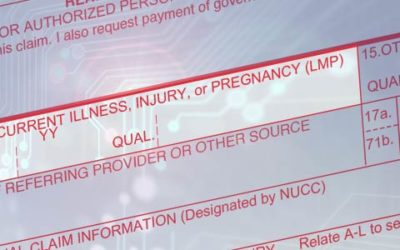
Marty Kotlar, DC, CPCO, CBCS
Question: Dr. Kotlar, “I just had a patient ask for a refund because he was not getting the results he was expecting. Do I have to return the money and how can I prevent this issue in the future?”
Answer: I’m assuming you did not guarantee the patient any type of clinical results. Therefore, you should not have to return the money. However, if you do not provide a refund, the patient may file a formal complaint. Giving the patient a refund may be the easiest way to prevent this issue from escalating. If you do decide to refund, emphasize that you admit no wrongdoing and you’re returning the money because you feel it’s the ethical thing to do. Before you take any action, contact your malpractice carrier and state association for assistance. Another very important pro-active step to take is to create a billing and coding policy manual. If you had policies and procedures on refunds and how they relate to clinical results, it may have prevented this situation. Here are 4 good reasons to have a billing and coding policy manual:
1. For Staff:
Staff members want organization and leadership. They want to work in an ethical and trustworthy atmosphere. A billing & coding policy manual creates a culture of compliance and is an extension of your mission and values. Also, if you have a staff member that is accusing the business owner of wrongdoing, a policy manual can contain the ammunition to defend any alleged misconduct.
2. For Patients:
Billing mistakes and fee confusion are unfortunate, stressful and can cause patients to discontinue care. Your patients expect you to have fair and ethical policies and procedures. Do you clearly explain your cash patient discounts? Do you clearly explain how you handle deductibles and co-pays? A billing and coding manual is a good pro-active way of preventing unnecessary patient upsets.
3. For Insurance Companies/State Boards/Malpractice:
A billing & coding policy and procedure manual can prevent audits. And if audited, it can mitigate fines and penalties. You look bad and unprofessional if you cannot prove to an investigator, state board or patient what your billing & coding policies are. They must be formal…that means in-writing and kept track of in training logs.
4. For The Doctor:
A billing & coding policy manual is a custom-made document for your particular type of practice. For example, do you have a policy on full-spine adjusting when you only bill 98940? Do you have a policy on open adjusting/therapy rooms? How about a policy on cell phone use by staff members? A policy manual allows you to tell “your story” in a professional manner. It will help you S.W.A.N. (sleep well at night).
Email info@targetcoding.com if you’d like to receive information on how to create a billing & coding policy manual. They are inexpensive and easy to implement. Formal written policies and procedures with training logs are required to be implemented by the doctor and staff if you treat Medicare patients – this type of manual is also known as a Medicare/OIG compliance plan. If you do not see Medicare patients, and treat BC/BS, Aetna, Cigna, Personal Injury and even cash patients, we still strongly recommend implementing a billing compliance plan for the 4 reasons mentioned above.
Marty Kotlar, DC, CPCO, CBCS is the President of Target Coding. Dr. Kotlar is Certified in CPT Coding, Certified in Healthcare Compliance and has been helping chiropractors nationwide with HIPAA, Medicare compliance, documentation and compliant cash plans for over 10 years. Target Coding can be reached at 1-800-270-7044, website – www.TargetCoding.com, email – info@targetcoding.com.









 ▶︎
▶︎  Why is the Discount Challenge prize amount $15,024? Because that is the average “per-occurrence” fine for Medicare inducements. That’s not $15,024 per patient, that’s not per provider, that’s PER VISIT. Stinks, doesn’t it? To us, the prize amount is worth the investment if we can help our profession better understand proper discounting.
Why is the Discount Challenge prize amount $15,024? Because that is the average “per-occurrence” fine for Medicare inducements. That’s not $15,024 per patient, that’s not per provider, that’s PER VISIT. Stinks, doesn’t it? To us, the prize amount is worth the investment if we can help our profession better understand proper discounting.